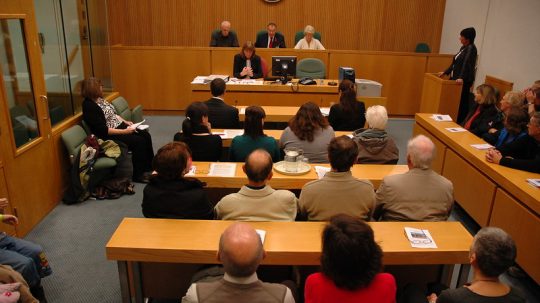The home secretary James Cleverly unveiled in a tweet on Monday that he had laid an order before Parliament to ban dependants of overseas care workers from coming to the UK. The ban will deprive people working in one of the most important sectors in the UK of the chance to bring their families from overseas – raising questions over the right to respect for family life enshrined in the European Convention on Human Rights.
Today in Parliament we have laid an order to ban overseas care workers from bringing dependants.
This is just one part of our plan to deliver the biggest-ever cut in migration 👇 pic.twitter.com/ZRTMfvVho8
— James Cleverly🇬🇧 (@JamesCleverly) February 19, 2024
Cleverly has claimed the move will help the government in its plan to deliver the “biggest ever cut in migration”. The plan incorporates five priorities, and Cleverly’s tweet marketed the ban under the umbrella of the profoundly controversial pledge to ‘stop the boats’.
Criticism of the policy by a range of people soon flooded social media, from advocacy organisations to MPs. The SNP’s Westminster Leader Stephen Flynn commented on the ban in his own tweet, stating it “will damage the care sector, the NHS and the economy. It is populist idiocy.”
The UK Black Lives Matter organisation also pointed out, in a tweet, the irony that Cleverly’s own mother came to Britain to work in the care industry, yet he is preventing other migrant families from having the same chances in life that he has benefited from.
As it stands, the ban will take effect on 11 March and follows the government’s decision to double the minimum income threshold – to £38,700 – for attaining a family visa. However, this rise in the level of eligible income could create an uneven playing field for migrants working in the UK, by singling out health workers, as the group least likely to be able to afford to bring their family members to live with them.
In 2023, a Skills for Care report highlighted the shortage of social care workers. It revealed that in spite of a decrease in the net percentage of vacancies in the sector, “there were still 152,000 vacant posts a day and 390,000 people left their roles last year”. The report also cited international recruitment as one of the ways in which the impact of the vacancy gap has been mitigated. It states: “[International recruitment] has played a part in the increase in filled posts and reduction in vacant posts seen in this report.”
Unison’s head of social care Gavin Edwards pointed out the nonsensical nature of these new policies, whereby care providers would now find it even harder to find much-needed recruits. He stated: “Firms have to recruit from overseas because the government’s done nothing to solve the care staffing crisis.” He added that the “Ministers’ reckless changes to immigration policy spelled disaster for social care. Until pay rates rise substantially, there’ll never be enough UK-based recruits to plug the huge hole in the care workforce.”
In the meantime, Liberal Democrat MP, Alistair Carmichael has presented a bill in the House of Commons that seeks to prohibit any increase in minimum income thresholds for family visas.
The UK’s minister for legal migration and delivery, Thomas Pursglove, read out a written statement in the House of Commons defending the reasoning for the ban. He said the move to make it harder for social care workers and their families to work in the UK is “expected to mean around 300,000 people who would have been eligible to come to the UK under last year’s rules would not be able to”.
However, as already stated, 390,000 workers left their positions in the social care sector last year, and there has been no indication from Mr Pursglove as to how the government aims to mitigate the impact that the proposed reduction in migrant applicants will have on an industry already blighted by an inability to fill vacancies.
The Mayor of London has also spoken in opposition to the ban, putting on the record his concerns about the effect that the attempted curb on migration policy will have on the NHS and social care system, exacerbating the existing strain on these services.
Sadiq Khan argued that “these proposals would further undermine this critical sector and place the already-stretched NHS and social care system under even more pressure”. He also expressed concerns about the mental health impact the changes would have on the families of migrant social care workers – who helped the UK in a time of need during the Covid-19 crisis.
“These are the same key workers we relied on during the pandemic, who deserve to finish their working day and see their family. I am particularly concerned by the negative mental health impact these changes will have on separated parents and children.”
It is clear that the ban on dependants of overseas care workers will continue to be met with stiff opposition from figures across the political spectrum, as well as by the relevant unions.





